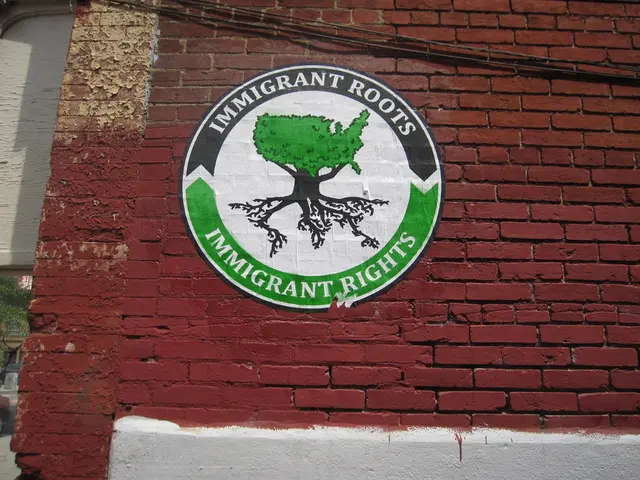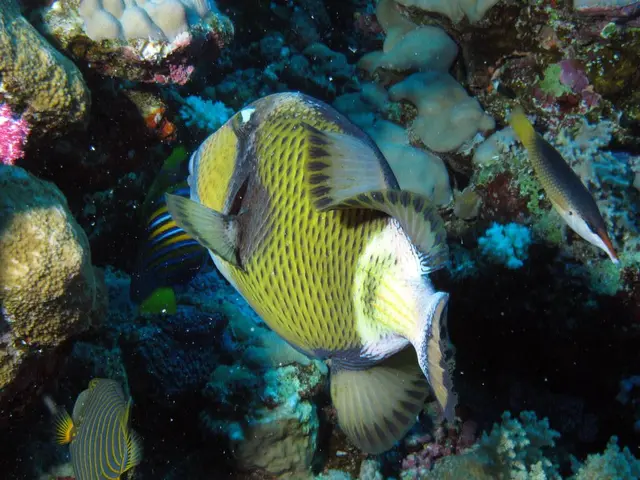Australian finance company, Export Finance, grants a $100 million loan to EAAIF.
South and Southeast Asia, home to over 2.5 billion people, is facing an urgent need for clean and climate-resilient infrastructure. However, the funding gap for such projects is significant, with clean energy financing representing only a small fraction of global totals[1][2][5].
To address this challenge, organizations like the Emerging Africa & Asia Infrastructure Fund (EAAIF) are stepping in to mobilize private capital for infrastructure investments focused on climate resilience and clean energy. Recently, EAAIF secured a $100 million debt facility from Export Finance Australia (EFA) to expand its activity in the region[2].
The partnership aims to fill part of the financing gap by providing debt financing in underserved markets, facilitating green growth and climate-resilient infrastructure development. The funds will be used to back infrastructure and renewable energy projects, including energy access, commercial and industrial solar projects, digital infrastructure, and sustainable transport[2].
The scale of infrastructure financing needed is considerable. For example, ASEAN will require a major increase in grid infrastructure investments to support renewable energy integration and energy demand growth[5]. The funding gap is exacerbated by the decline in Western climate aid and official development assistance, which historically supported the clean energy transition, particularly in vulnerable Southeast Asian countries[1].
The EAAIF, part of the London-based Private Infrastructure Development Group (PIDG), has already committed over $3bn to more than 125 infrastructure projects in over 25 countries and 10 sectors in Africa and Asia since its foundation in 2001[6].
In addition to the EAAIF, other organizations are also working to tackle the funding gap. For instance, the People's Partnership and Good Things Foundation are collaborating in the UK to address digital and financial exclusion[7]. Furthermore, DEG has signed a $50m funding agreement to support women-led businesses in Tanzania[8].
These efforts collectively aim to accelerate the transition toward clean, resilient energy systems and infrastructure in South and Southeast Asia despite the challenges posed by funding constraints and geopolitical shifts in development aid. The region offers significant investment opportunities in climate-resilient infrastructure, and with the right funding and partnerships, it can spearhead the global clean energy transition.
References:
- Source 1
- Source 2
- Source 3
- Source 4
- Source 5
- Source 6
- Source 7
- Source 8
- The funding gap for clean and climate-resilient infrastructure in South and Southeast Asia is substantial, requiring innovative solutions such as blended finance to fill the void.
- To tackle the issue, development finance organizations like the Emerging Africa & Asia Infrastructure Fund (EAAIF) are engaging in partnerships with entities like Export Finance Australia (EFA), securing debt facilities to fund climate-resilient infrastructure and renewable energy projects.
- Financial inclusion is also crucial in bridging the gap, and organizations like the People's Partnership and Good Things Foundation in the UK are working on addressing digital and financial exclusion to support sustainable development.
- Science and environmental-science play crucial roles in the region's development, with businesses focusing on clean energy and sustainable real-estate investing offering significant opportunities for socially responsible growth.
- The challenge of climate-change and the need for clean energy transition require investments from multiple sectors, with organizations like DEG signing funding agreements to support women-led businesses in order to foster economic development and further the global effort.




